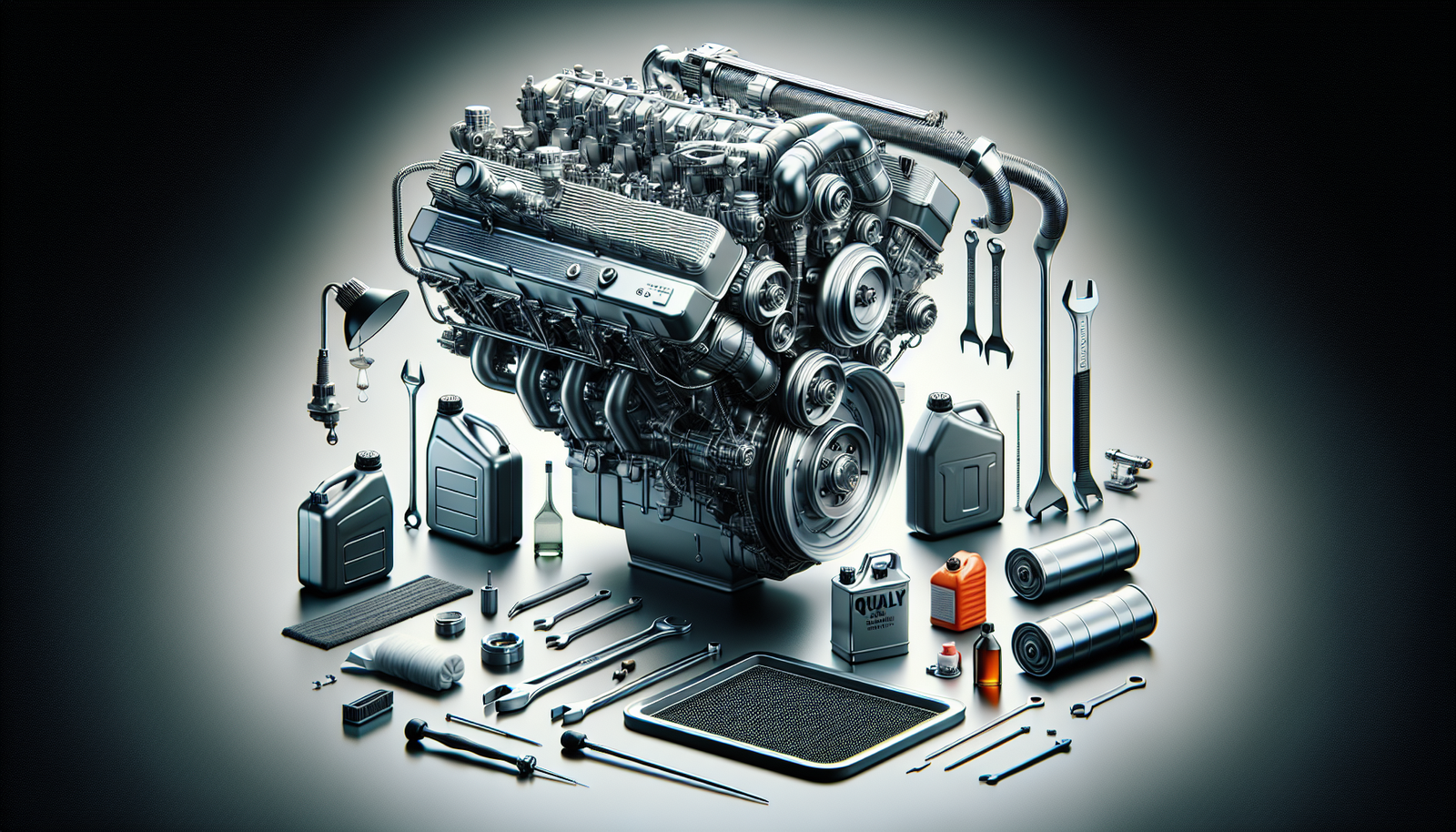Just imagine slicing through the calm, glass-like water in your boat, the only sound being the gentle splash as the bow cuts through the waves – not a noisy, rattling engine. “The Best Ways To Keep Your Boat Engine Running Smooth And Quiet” guides you on transforming this dream into a reality. This article is your go-to resource for advice and tips on how to maintain your boat engine, keeping it not just efficient, but silent too. It’s time to enjoy those serene moments at sea with just the sounds of nature for company. Here’s how to achieve a quieter, more peaceful journey out on the water.
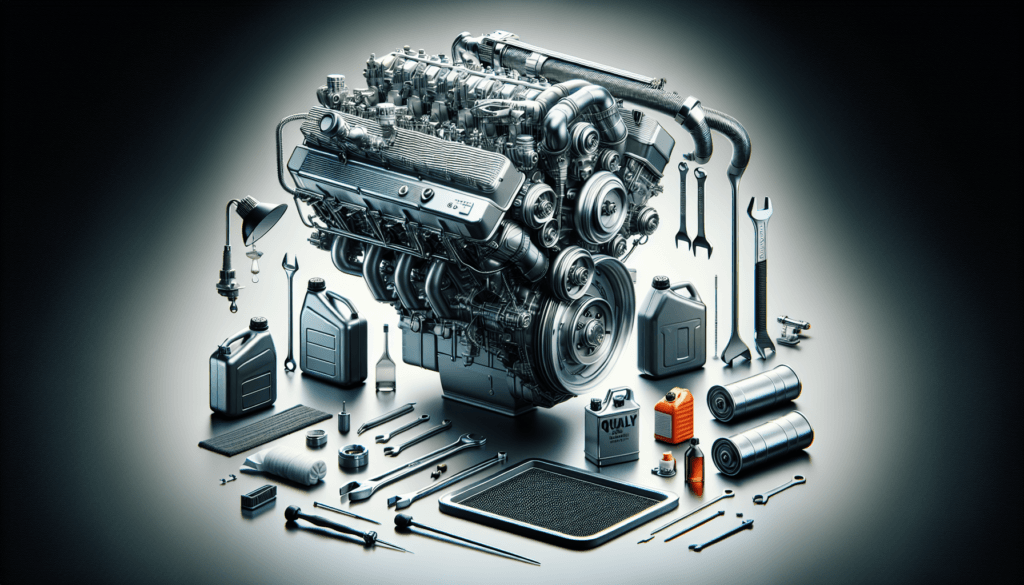
Understanding Your Boat Engine
Knowing your way around your boat engine is the first essential step to maintaining it. A good grasp of its functionalities and structure will come in handy when you’re out and about, miles away from the nearest help.
Necessity of knowing its make and model
Just like cars, every boat engine is unique. Each make and model has its own set of specific instructions for usage and maintenance, not knowing which can lead to long-term damage. This information will also assist you in acquiring the right kind of replacement parts and lets you access specific troubleshooting advice.
Understanding the engine manual
Tucked away in the pages of the engine’s manual are a treasure trove of information: from routine maintenance procedures, all the way to complex repair instructions. It covers everything you need to know about your engine’s needs. Spend a bit of time acquainting yourself with the manual and it could save you a world of trouble in the future.
Regular Maintenance Check
Regular maintenance checks are one of the best ways to keep your boat engine running smoothly and preventing damages that could go unnoticed.
Performing consistent checks
You need to regularly check your boat engine for any signs of wear and tear, just like going for a regular check-up at the doctor. It helps in identifying any potential problems before they become major.
Preventing unnoticed damages
When you perform regular maintenance checks on your machine, you’re likely to spot early signs of damage that would otherwise go unnoticed. If left unchecked, these microscopic issues can evolve into giant headaches, making them more difficult (and costly) to address in the long run.
Ensuring longevity of the engine
By keeping a close eye on your engine, and following the manufacturer’s upkeep guidelines, you’re extending the life of your engine. Just a simple tweak here and there can significantly impact the engine’s performance and lifespan.
Proper Lubrication
Tailored to decrease resistance between moving parts and prevent overheating, lubricating your boat’s engine is a must-do task on your maintenance checklist.
The role of engine oil
The engine oil needs to be checked before every outing. A drop in the oil can cause the engine’s internal components to rub against each other and lead to premature wear and tear.
Suitable lubricants for your engine
Not all engine oils are suitable for your boat engine. Some are better at dealing with water and salt which makes them more preferable for marine transportation. Always check your engine manual for the appropriate lubrication type.
Frequency and process of changing engine oil
Your boat’s engine oil should be changed every 100 hours of operation or annually, whichever comes first. The process involves draining the old oil, changing the oil filter, and refilling with new oil.
Keeping the Fuel System Clean
The fuel system’s cleanliness plays a vital role in the overall health of your boat engine.
Avoiding contaminated fuel
Fuels contaminated with water, dirt, or rust can cause severe damage to your engine. Always ensure the fuel you purchase is from a dependable source and stored under clean conditions.
Using high-quality fuel
High-quality fuel contributes to an unhindered performance of your boat engine. While it might cost a bit more, it can save you on extensive repair costs in the future.
Regular cleaning of fuel filters
Regular cleaning and replacement of fuel filters is another effective way to ensure a clean fuel system. It helps by trapping oil, dirt, and other invading particles before they reach the engine.
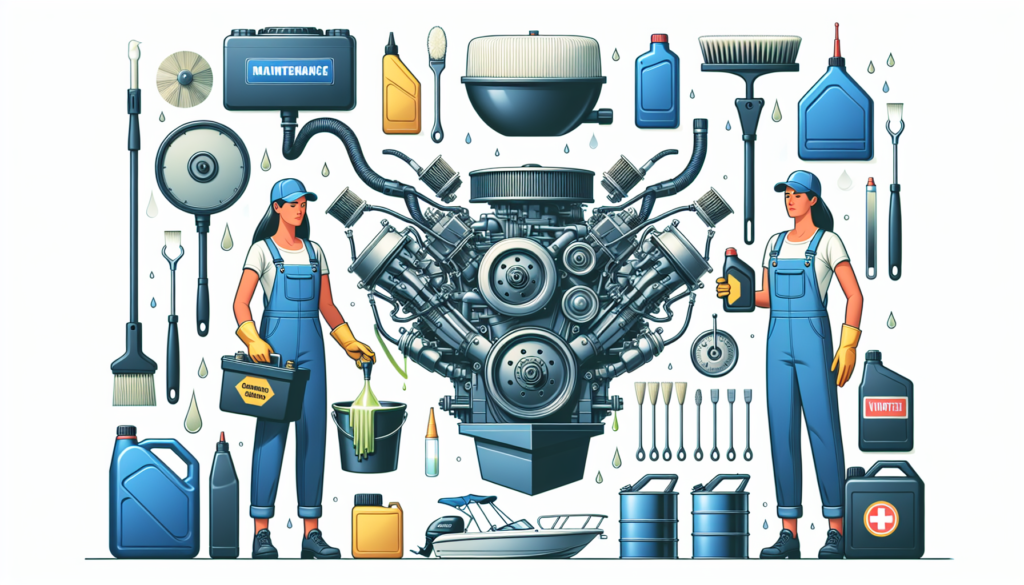
Engine Tune-ups
An engine tune-up adjusts your engine to improve its performance and ensure its longevity.
Understanding the need for tune-ups
Regular engine tune-ups are needed to keep your boat engine performing optimally. Ignoring this can lead to a sluggish performance and excessive fuel consumption.
Signs that a tune-up is required
Several signs suggest that your engine is due for a tune-up, such as poor fuel mileage, frequent stalling, and an overall loss in power.
Professional vs DIY tune-ups
While some maintenance tasks are feasible for you to do, a professional tune-up is essential to ensure that everything is running as it should be. Experts can use specific tools and have the knowledge to identify issues you might overlook.
Preventing Engine Overheating
Regularly inspecting the cooling system is essential in preventing overheating of your boat’s engine.
Regular water pump inspection
Regular checks on the water pump will help spot any signs of cracking or wearing away that could lead to overheating.
Keeping proper coolant levels
Regular monitoring of coolant levels is essential in ensuring that the engine does not run hot. Failure to keep coolant at an adequate level could lead to severe engine damage.
Significance of a well-maintained cooling system
A well-maintained cooling system ensures that your boat’s engine performs optimally without overheating, maintaining the engine’s condition, and preventing potential damage and repair costs.
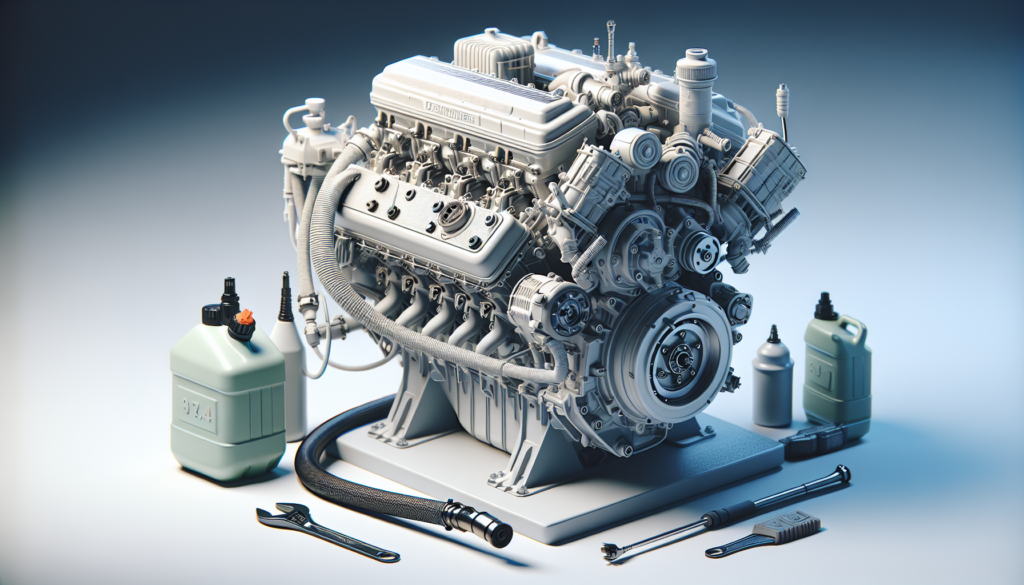
Maintaining the Electrical System
The electrical system also merits attention in your maintenance routine.
Preventing rust and corrosion
Rust and corrosion can cause a major setback to your boat’s electrical system, leading to shorts, blown fuses, and other problems. Regular cleaning and appropriate use of lubricants can keep this at bay.
Keeping batteries in good condition
Regular checking of your boat’s battery, ensuring it is clean, dry, and fully charged, will prevent sudden failures when you’re out on the water.
Regular checks on wiring and connections
Regular inspection of all the wiring and connection will help to prevent any electrical problems in your boat. Loose or corroded connections can be identified and addressed promptly.
Using the Right Propeller
Choosing a proper propeller for your boat is essential in maintaining the boat’s engine and ensuring an efficient ride.
Importance of the right propeller size
The size of the propeller influences the engine’s performance. Too large or small a propeller can either strain or underutilize the engine. Check the engine manual for the appropriate size.
Addressing propeller damages
A damaged propeller can rock your boat’s balance and put undue stress on the engine. Regularly inspect and attend to any damages promptly.
Adjusting propeller for efficient running
Adjusting the propeller pitch will ensure an efficient run. An incorrectly adjusted propeller might cause the engine to exceed its maximum allowed RPM or not reach the required RPM for optimal performance.
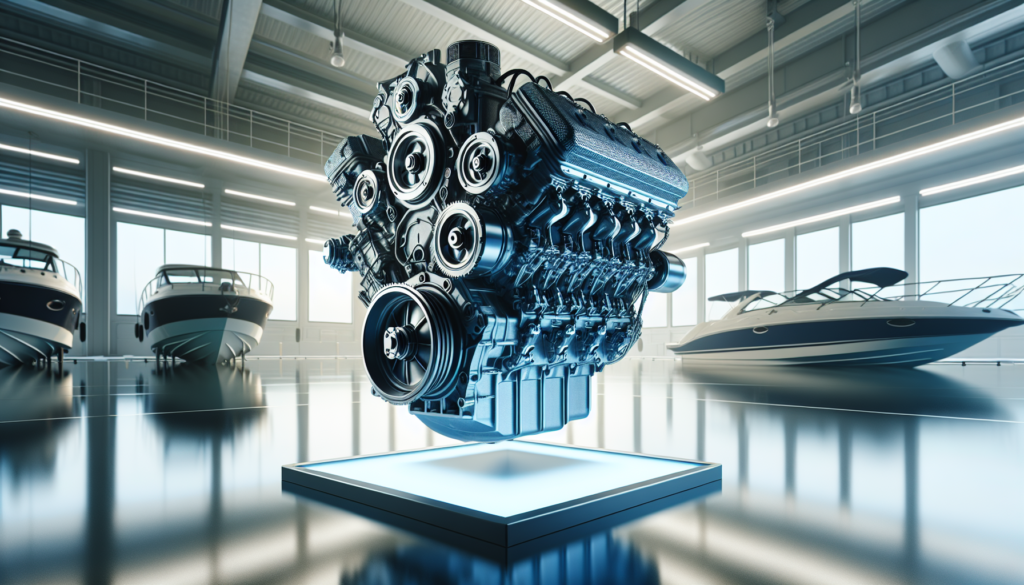
Winterizing Your Boat Engine
Winterizing your boat involves taking steps to protect the engine during the off-season.
Prepping the engine for colder months
As winter approaches, prepare your engine by changing the engine oil and filling up the fuel tank to prevent condensation. Always check the antifreeze to ensure it’s at the required level, and bear in mind the importance of proper storage.
Importance of antifreeze
Antifreeze prevents the engine from freezing and causing cracks in the engine block and manifold, which can lead to costly repairs.
Proper storage tips
Properly storing your boat for winter involves draining water from the engine block, manifold, and water pump to prevent freezing. You should also disconnect the battery and store it in a warmer place.
Professional Maintenance and Repair
While there’s a lot you can do yourself, the need for professional maintenance and repair services for your boat is essential.
Need for professional services
Professionals have the adequate knowledge and equipment to identify and fix complex issues that might be beyond the scope of a DIY task. They can also provide valuable advice on preventing future occurrences.
Choosing the right mechanic or service center
When your boat needs professional attention, choose a mechanic or service center that specializes in your boat engine’s make and model. This ensures that they have the required expertise and equipment.
Balancing DIY and professional maintenance
While DIY maintenance can keep your boat running smoothly, it’s worth taking it to a professional service center periodically for detailed checks. This ensures that hidden issues can be diagnosed and resolved, thus preserving the overall health and longevity of your engine.
In conclusion, by understanding your boat’s engine, keeping it well-maintained, and seeking professional help when needed, you’re taking the best steps towards keeping your boat’s engine running smoothly and quietly. Remember, a solid maintenance routine is beneficial in the long run, reducing the risk of major repair bills and prolonging your boat’s lifespan.

